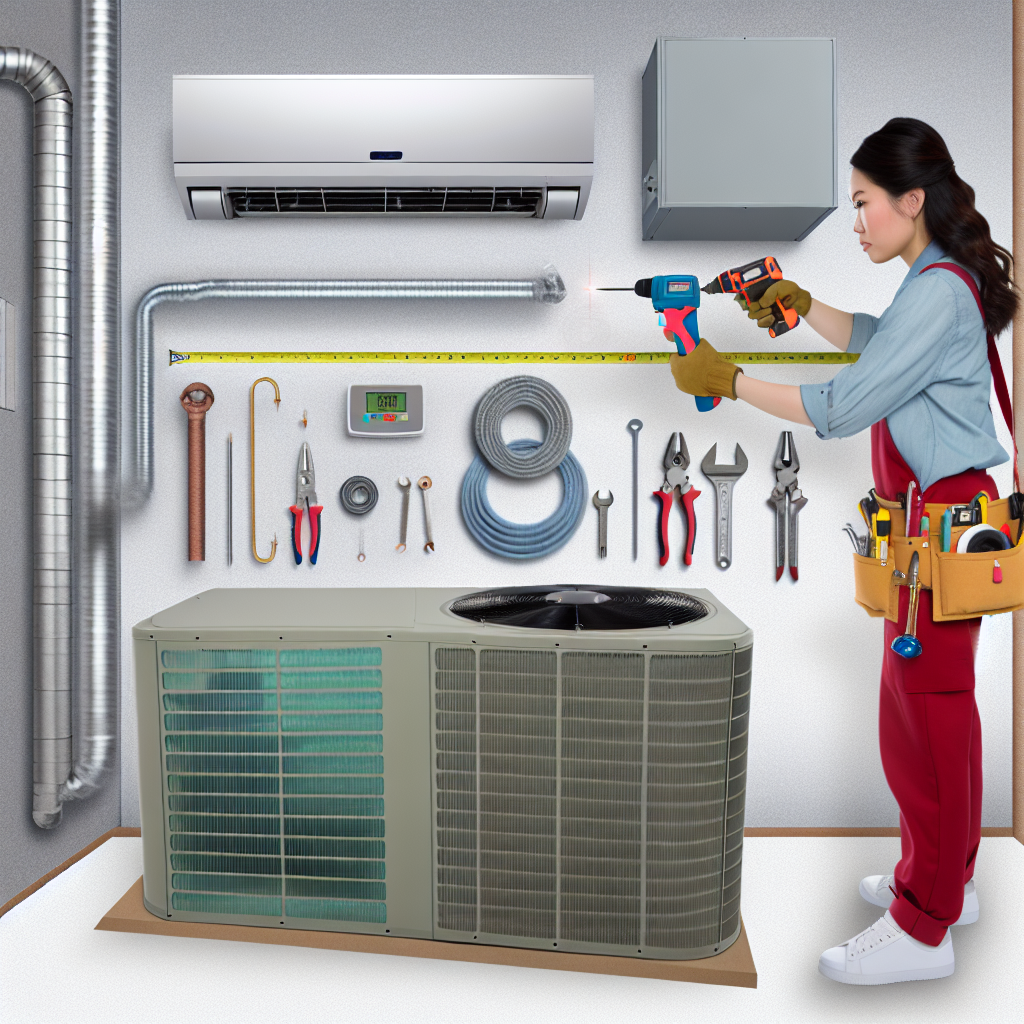Published: Dec 24, 2024

When it comes to ensuring your home is comfortable year-round, having the proper size HVAC system is crucial. A system that is too small will struggle to cool or heat your home effectively, while one that is too large will cycle on and off frequently, leading to increased energy bills and potential maintenance issues. Properly sizing your HVAC system requires a combination of understanding your home’s heating and cooling needs, as well as working with a professional HVAC contractor. This guide will walk you through the key considerations to help you choose the right size HVAC system for your home.
The size of your home is a fundamental factor in determining the capacity of your HVAC system. Larger homes require more powerful systems to adequately heat or cool the space, while smaller homes may be adequately served by a smaller system.
The climate in which you live plays a significant role in determining the size of the HVAC system you need. Hotter climates will require more cooling capacity, while colder climates will need more heating capacity.
The level of insulation in your home impacts how much heating or cooling is needed. Well-insulated homes are more energy-efficient and require smaller HVAC systems to maintain comfortable temperatures.
The number and type of windows and doors in your home affect heat gain and loss. Energy-efficient windows and doors can help reduce the load on your HVAC system.
The number of people living in your home can also affect the size of the HVAC system needed. More occupants mean more body heat that the system must counteract.
The condition and layout of your ductwork can impact the efficiency of your HVAC system. Properly sealed and insulated ducts help ensure that conditioned air reaches all areas of your home.
While understanding these factors is essential, the expertise of a professional HVAC contractor is invaluable in accurately sizing your system. An HVAC professional will conduct a load calculation, also known as Manual J calculation, to determine the heating and cooling requirements based on your home's specific characteristics.
During a load calculation, the contractor will consider not only the factors mentioned above but also other variables such as the orientation of your home, the number of floors, and the presence of heat-generating appliances. By taking all these factors into account, the contractor can recommend the ideal HVAC system size for your home.
An oversized HVAC system will cycle on and off frequently, leading to energy wastage and higher utility bills. On the other hand, an undersized system will run constantly to try to meet the thermostat setting, also increasing energy consumption.
Improperly sized systems can result in uneven heating or cooling throughout your home. Some rooms may feel too hot while others are too cold, leading to discomfort for occupants.
Frequent cycling and overworking due to improper sizing can shorten the lifespan of your HVAC system. It may also lead to more frequent repairs and maintenance needs.

Our expert technicians are ready to assist you 24/7!
Contact Us Today!Read our latest articles for helpful information about heating, cooling, and air quality.
Regular HVAC maintenance is essential for improving energy efficiency, extending the lifespan of your system, enhancing...
Read MoreImplement these 10 tips to enhance the air quality in your home, promoting a healthier living environment for you and y...
Read MoreRegular seasonal HVAC maintenance is essential for maximizing system efficiency, ensuring indoor air quality, preventing...
Read MoreSmart thermostats offer energy savings, convenience, learning capabilities, and integration with smart home systems, mak...
Read More